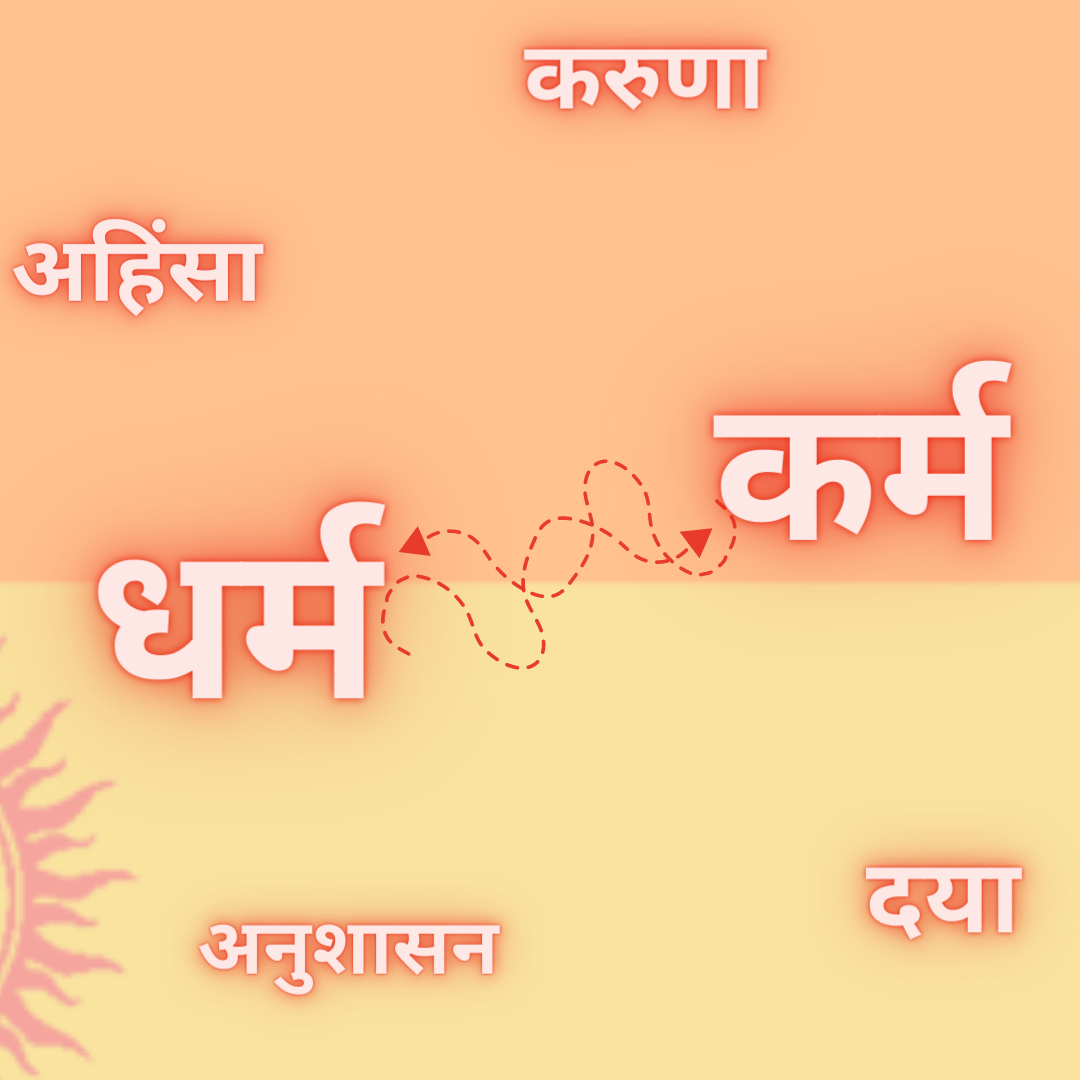Tagged: Ahimsa, Bhagwat Gita, Compassion, God, Mindfulness, Non-Vegetarian, Non-violence, Purana, Rajasic, sanatan, Sattvic, Scriptures, Shri Krishna, Tamasic
- This topic has 0 replies, 1 voice, and was last updated by .
-
AuthorPosts
-
May 21, 2023 at 3:28 am #1305Up::3
आयुःसत्त्वबलारोग्यसुखप्रीतिविवर्धनाः।
रस्याः स्निग्धाः स्थिरा हृद्या आहाराः सात्त्विकप्रियाः।।
जय श्री कृष्ण ! All of us have heard from somewhere or other that meat is offered to God and he consumes meat, and seeing that many of us have started consuming meat, is it true? Does God really accept the offering of meat, and should we consume meat? When we talk about Sanatan Dharma, we get many answers and many stories that we misunderstand, and to understand this, we consider mythological texts helpful. Lets know : What does Bhagavad Gita and other Purana say about food?
- The Bhagavad Gita, a sacred Sanatan scripture, does not explicitly address the topic of non-vegetarianism in a direct or comprehensive manner. However, it does provide teachings that can be interpreted to support various perspectives on the matter. In the Bhagavad Gita, Lord Krishn imparts spiritual wisdom and guidance to the warrior Arjuna. The text primarily focuses on principles such as duty, righteousness, selfless action, and devotion to God. The Gita emphasizes the importance of maintaining a balanced and disciplined lifestyle, practising self-control, and cultivating a compassionate and non-violent attitude towards all beings. Some proponents of vegetarianism in Sanatan Dharma argue that the Bhagavad Gita promotes a compassionate and non-violent lifestyle, thereby suggesting a preference for a vegetarian diet. They interpret verses such as Chapter 17, Verse 7, which talks about the three types of food—Sattvic (pure), Rajasic (passionate), and Tamasic (ignorant)—to support the idea that a vegetarian diet is more aligned with a spiritually elevated and compassionate way of living.
However, it is worth noting that the Bhagavad Gita also emphasizes the performance of one’s prescribed duties and the acceptance of food offered in devotion Chapter 3, Verse 13. This verse implies that one’s intention and attitude towards food are crucial. Therefore, some individuals interpret this to mean that as long as non-vegetarian food is obtained through legitimate means and consumed with gratitude and moderation, it may be acceptable. Ultimately, interpretations of the Bhagavad Gita’s teachings on non-vegetarianism may vary among individuals and different schools of thought within Sanatan Dharma. The emphasis is generally placed on cultivating a spirit of non-violence, compassion, and mindfulness in one’s actions and choices.

- The Garuda Purana, a Sanatan scripture, is a text that primarily focuses on death, the afterlife, and various aspects of the soul’s journey. While it contains discussions on various topics, including ethical conduct and lifestyle, it does not specifically address non-vegetarian food in great detail. However, it is important to note that the Garuda Purana, like other Sanatan scriptures, promotes the concept of ahimsa (non-violence) and emphasises compassion towards all living beings. Ahimsa is considered a fundamental principle in Sanatan Dharma, and many followers interpret it as advocating for a vegetarian diet. While the Garuda Purana may not explicitly address non-vegetarian food, it does emphasize the importance of leading a righteous and virtuous life. It encourages individuals to practise self-discipline, kindness, and moral conduct in their actions and choices. It is important to remember that Sanatan scriptures can be interpreted in different ways, and individuals may have varying perspectives on the subject. Some people may interpret the teachings of the Garuda Purana as supporting vegetarianism as a means of practising non-violence and compassion, while others may have a more nuanced interpretation or different dietary practises.

src : Garuda Purana , Bhagwat Gita Chapter 17, Verse 7, Chapter 3, Verse 13.
Attachments:
You must be logged in to view attached files. - The Bhagavad Gita, a sacred Sanatan scripture, does not explicitly address the topic of non-vegetarianism in a direct or comprehensive manner. However, it does provide teachings that can be interpreted to support various perspectives on the matter. In the Bhagavad Gita, Lord Krishn imparts spiritual wisdom and guidance to the warrior Arjuna. The text primarily focuses on principles such as duty, righteousness, selfless action, and devotion to God. The Gita emphasizes the importance of maintaining a balanced and disciplined lifestyle, practising self-control, and cultivating a compassionate and non-violent attitude towards all beings. Some proponents of vegetarianism in Sanatan Dharma argue that the Bhagavad Gita promotes a compassionate and non-violent lifestyle, thereby suggesting a preference for a vegetarian diet. They interpret verses such as Chapter 17, Verse 7, which talks about the three types of food—Sattvic (pure), Rajasic (passionate), and Tamasic (ignorant)—to support the idea that a vegetarian diet is more aligned with a spiritually elevated and compassionate way of living.
-
AuthorPosts
- You must be logged in to reply to this topic.